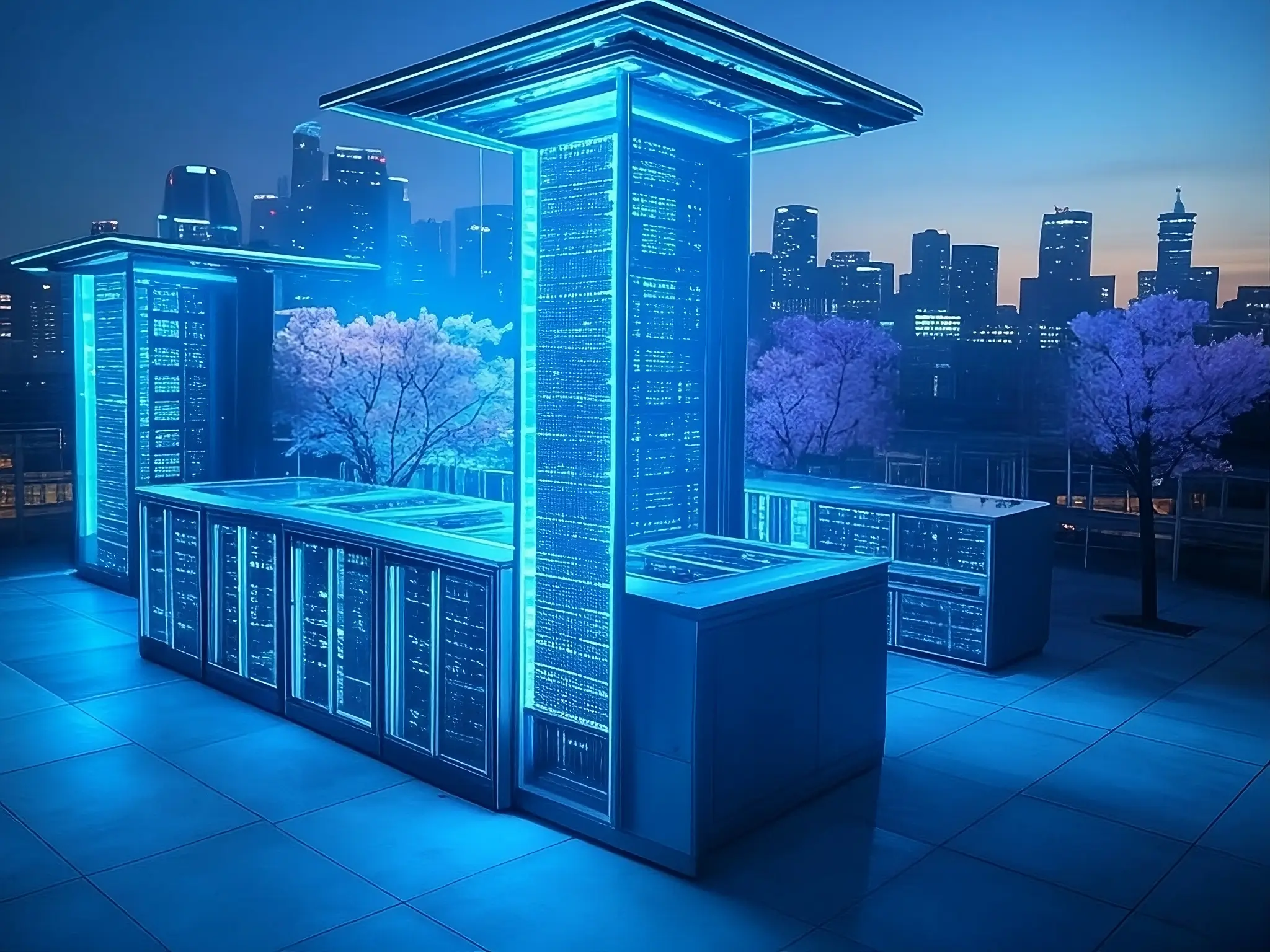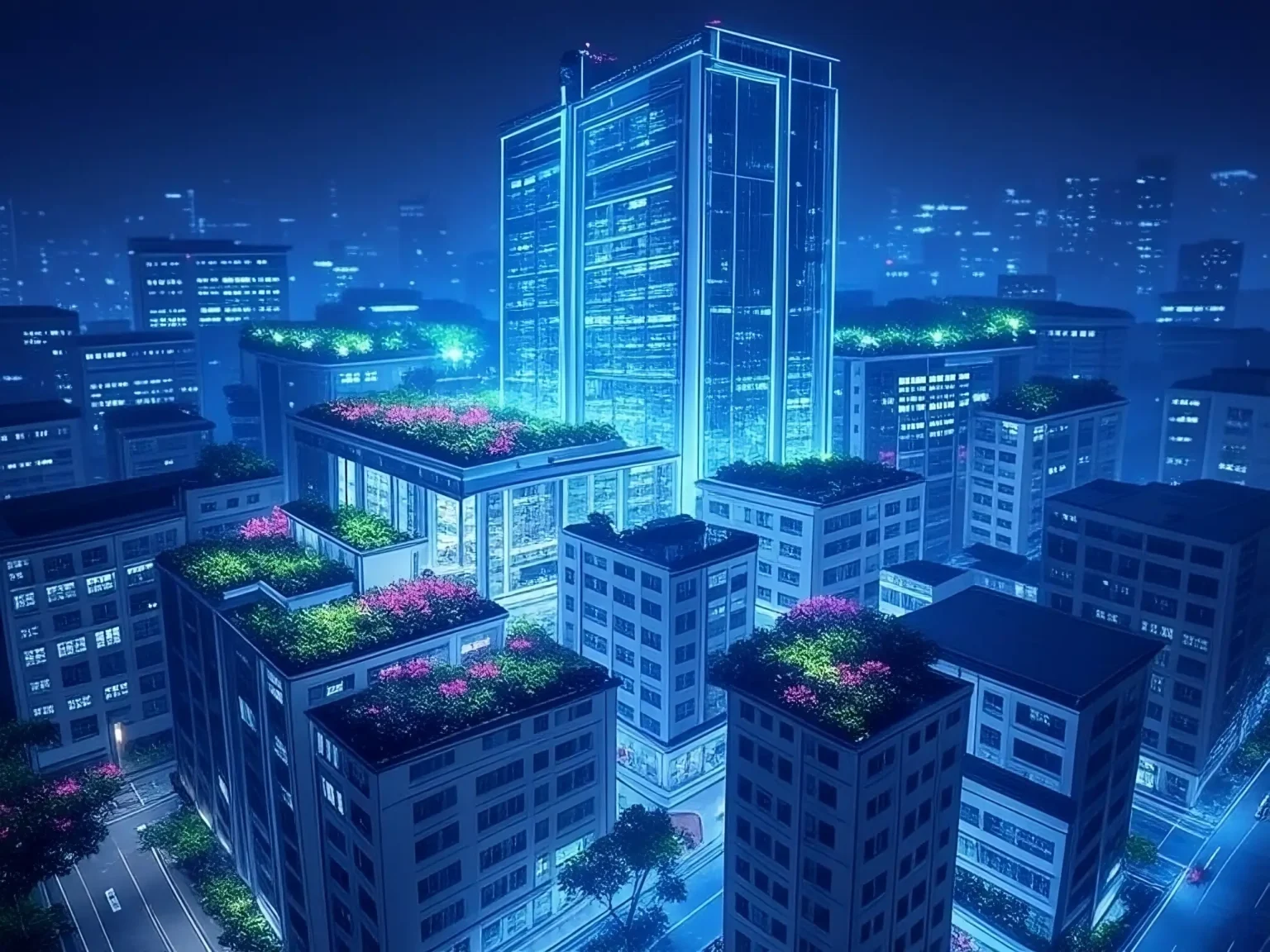SoftBank’s $676M Bet: Sharp Plant Turns AI Powerhouse with OpenAI

Key Points
- It seems likely that SoftBank has acquired a former Sharp plant for $676 million to build an AI data center in Japan, collaborating with OpenAI.
- The evidence leans toward this facility, the Sakai Plant in Osaka, starting operations in 2026 with a power capacity of 150 megawatts, scalable to over 240 megawatts.
- Research suggests this move is part of a broader partnership, including the joint venture SB OpenAI Japan and the deployment of “Cristal Intelligence,” an enterprise AI platform.
- An unexpected detail is SoftBank’s potential $25 billion investment in OpenAI, which could value the company at nearly $300 billion, though this is not yet confirmed.
- Overview of the Acquisition
SoftBank, a major Japanese tech company, has likely purchased a former Sharp LCD factory in Osaka for $676 million to convert it into an AI data center. This move is part of its collaboration with OpenAI, the company behind ChatGPT, to boost AI development in Japan.
- Details of the Deal
The acquisition includes the Sharp Sakai Plant, with both land and buildings, and is set to commence operations in 2026. The facility will initially have a power capacity of 150 megawatts, with plans to increase to over 240 megawatts, making it suitable for training AI models and running services. This is SoftBank’s third data center in Japan, alongside existing ones in Tokyo and another under construction in Hokkaido.
- Collaboration with OpenAI
The partnership involves SB OpenAI Japan, a joint venture that will use the Sakai Plant to train AI models using client data, particularly for marketing and other activities, and sell customized AI agents. They’re also deploying “Cristal Intelligence,” an advanced enterprise AI system, to Japanese businesses. There’s talk of SoftBank investing up to $25 billion in OpenAI, potentially valuing it at $300 billion, but this hasn’t been officially confirmed yet.
- Why It Matters
This acquisition is part of Japan’s push to lead in AI, driven by global demand for data centers due to generative AI. It could help Japanese businesses use AI for tasks like customer service and supply chain optimization, but challenges like energy consumption and grid capacity remain.
- An Unexpected Angle
While the focus is on the data center, it’s interesting to note that SoftBank’s CEO, Masayoshi Son, has suggested artificial general intelligence (AGI) might arrive sooner than expected, possibly aided by this collaboration, which adds a futuristic twist to the project.
For more details, check out TechCrunch and Nikkei.
- Comprehensive Analysis and Detailed Report
In a significant development for Japan’s technological landscape, SoftBank has acquired a former Sharp LCD factory in Osaka for $676 million, aiming to transform it into a cutting-edge AI data center in collaboration with OpenAI. Announced on March 14, 2025, this move underscores SoftBank’s ambition to lead Japan’s AI revolution and deepen its strategic partnership with the U.S.-based AI pioneer behind ChatGPT. This report provides a detailed examination of the acquisition, its implications, and the broader context, drawing on trusted sources and incorporating external links for further reading.
- Background and Context
SoftBank, a telecommunications and investment giant, has long positioned itself as a visionary in emerging technologies. Under CEO Masayoshi Son, the company has made bold bets, from early investments in Yahoo! and Alibaba to its $100 billion Vision Fund. The latest move aligns with its focus on AI, particularly in its home market of Japan, where it seeks to capitalize on the global AI boom. OpenAI, known for developing ChatGPT and DALL-E, has been expanding its global footprint, and this collaboration marks a significant step in bringing its AI models to Japan.
The acquisition involves the Sharp Sakai Plant, a facility previously used for LCD panel production, which Sharp, a former titan in electronics, sold as demand for LCDs waned amid competition from OLED technologies. This repurposing reflects a broader trend of converting industrial sites for high-tech uses, particularly AI data centers, which are critical for training and running generative AI models.
- Details of the Acquisition
On March 14, 2025, SoftBank confirmed the purchase and sale agreement with Sharp for the Sakai Plant, priced at 100 billion yen ($676 million), covering both land and buildings. This follows a Memorandum of Understanding (MOU) signed in June 2024, as detailed in Sharp’s press release, which outlined plans to construct a large-scale AI data center at the site. The MOU specified a site area of approximately 440,000 square meters, with a total floor area of 750,000 meters and an initial power capacity of over 150 megawatts, expected to increase to over 400 megawatts in the future.
The Sakai Plant is set to commence operations in 2026, with an initial power capacity of 150 megawatts, scalable to over 240 megawatts, as reported by TechCrunch. This capacity is crucial for handling the energy-intensive tasks of AI model training and inference, which require thousands of GPUs working in tandem. The facility will be SoftBank’s third data center in Japan, complementing an operational site in Tokyo and another under construction in Hokkaido, as noted in Nikkei Asia.
- SoftBank-OpenAI Partnership
The acquisition is deeply tied to SoftBank’s collaboration with OpenAI, which has been evolving over recent months. The joint venture, SB OpenAI Japan, was established to deploy advanced AI solutions tailored for Japanese enterprises. A key component is “Cristal Intelligence,” an enterprise-grade AI platform announced in February 2025, as per SoftBank’s press release. This system is designed to integrate the systems and data of individual companies securely, customized for each enterprise, with SoftBank planning to spend $3 billion annually to deploy it across its group companies, including Arm and SoftBank Corp.
SB OpenAI Japan will use the Sakai Plant to train AI models using client data, particularly from marketing and other activities, and sell customized AI agents, as reported by Nikkei. These agents are autonomous programs capable of making decisions and executing tasks based on user-defined parameters, representing a significant advancement beyond current AI chatbots. The collaboration also builds on OpenAI’s broader efforts, including U.S. data center projects with Oracle and others, as detailed in TechCrunch.
Additionally, there are ongoing talks of SoftBank investing up to $25 billion in OpenAI, potentially valuing it at nearly $300 billion, though this fundraise has yet to close or be officially announced, according to TechCrunch. This potential investment highlights the depth of the partnership and SoftBank’s commitment to OpenAI’s global mission.
- Significance for Japan’s AI Landscape
Japan’s data center market is experiencing rapid growth, driven by digital transformation and AI adoption. According to JLL, the market is the second largest among developed countries, after the U.S., and is expected to grow at a compound annual growth rate (CAGR) of 10.8% by 2027, fueled by cloud services and AI demands. The Sakai Plant acquisition aligns with this trend, positioning Japan as a hub for AI research and commercialization.
Historically, Japan has excelled in hardware innovation, with companies like Sony and Toyota, but has lagged in software and AI compared to the U.S. and China. This partnership could change that narrative, offering Japanese businesses customized AI solutions for tasks like customer preference prediction and supply chain optimization. The facility’s location in Osaka, a major industrial hub, also provides strategic advantages, including access to reliable power grids and proximity to key markets.

- Challenges and Opportunities
Building and operating an AI data center presents both challenges and opportunities. The energy demands are significant, with AI data centers consuming power equivalent to entire countries, as noted in Interface. Japan’s energy grid, still recovering from the 2011 Fukushima disaster, faces pressure, and the Sakai Plant’s initial 150 megawatts, scalable to 240 megawatts, will require careful management. However, the MOU with Sharp mentions plans to consider clean energy sources to minimize environmental impact, aligning with global sustainability trends.
Opportunities include attracting talent and investment to Osaka, revitalizing the region’s tech ecosystem, and positioning Japan as a leader in AI. The collaboration with OpenAI provides access to world-class AI expertise, while OpenAI benefits from Japan’s affluent market and SoftBank’s resources. This could also spur competition, with other players like Microsoft investing $2.9 billion in AI data centers in Japan, as reported by Business Insider.
- Broader Implications and Future Outlook
SoftBank’s move is part of a global race to dominate AI, with the U.S. and China also investing heavily in data centers and research. For Japan, the Sakai Plant is a declaration of intent to not be left behind, potentially setting a model for global AI adoption. Masayoshi Son has suggested that artificial general intelligence (AGI) might arrive sooner than expected, possibly aided by this collaboration, adding a futuristic dimension, as per The Verge.
As operations begin in 2026, the tech world will watch closely. Will “Cristal Intelligence” deliver on its promise? Can Japan carve out a leadership role in AI? The answers lie in Osaka, where a former LCD factory is being reborn as a beacon of the AI age, with potential to transform business operations and drive economic growth.
Key Details
Sakai Plant Acquisition
| Aspect | Details |
|---|---|
| PURCHASE PRICE | $676 million (100 billion yen) |
| LOCATION | Sharp Sakai Plant, Osaka, Japan |
| OPERATION START | 2026 |
| INITIAL POWER CAPACITY | 150 megawatts, scalable to over 240 megawatts |
| PURPOSE | AI data center for training models and running services, part of OpenAI collaboration |
| JOINT VENTURE | SB OpenAI Japan, deploying “Cristal Intelligence” for Japanese enterprises |
| PREVIOUS USE | LCD panel production, now repurposed for AI |
About the Author
Michael
Administrator
Michael David is a visionary AI content creator and proud Cambridge University graduate, known for blending sharp storytelling with cutting-edge technology. His talent lies in crafting compelling, insight-driven narratives that resonate with global audiences.With expertise in tech writing, content strategy, and brand storytelling, Michael partners with forward-thinking companies to shape powerful digital identities. Always ahead of the curve, he delivers high-impact content that not only informs but inspires.




Follow Us on Social Media